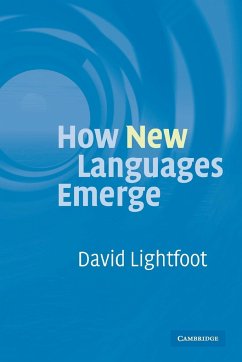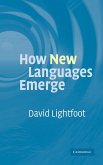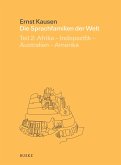New languages are constantly emerging, as existing languages diverge into different forms. To explain this fascinating process, we need to understand how languages change and how they emerge in children. In this pioneering study, David Lightfoot explains how languages come into being, arguing that children are the driving force. He explores how new systems arise, how they are acquired by children, and how adults and children play different, complementary roles in language change. Lightfoot makes an important distinction between 'external language' (language as it exists in the world), and 'internal language' (language as represented in an individual's brain). By examining the interplay between the two, he shows how children are 'cue-based' learners, who scan their external linguistic environment for new structures, making sense of the world outside in order to build their internal language. Engaging and original, this book offers an interesting account of language acquisition, variation and change.
Hinweis: Dieser Artikel kann nur an eine deutsche Lieferadresse ausgeliefert werden.
Hinweis: Dieser Artikel kann nur an eine deutsche Lieferadresse ausgeliefert werden.
'This expert study weaves together inquiries in theoretical and historical linguistics and acquisition of language, providing new ideas and insights about the nature of language and about the emergence of languages through history and in the individual. Lucidly written and accessible to a general audience, its original perspectives and acute analyses of wide-ranging empirical materials also provide fascinating challenges to those working at the borders of research in the many areas that Lightfoot engages. An impressive and very valuable contribution.' Noam Chomsky, Massachusetts Institute of Technology









